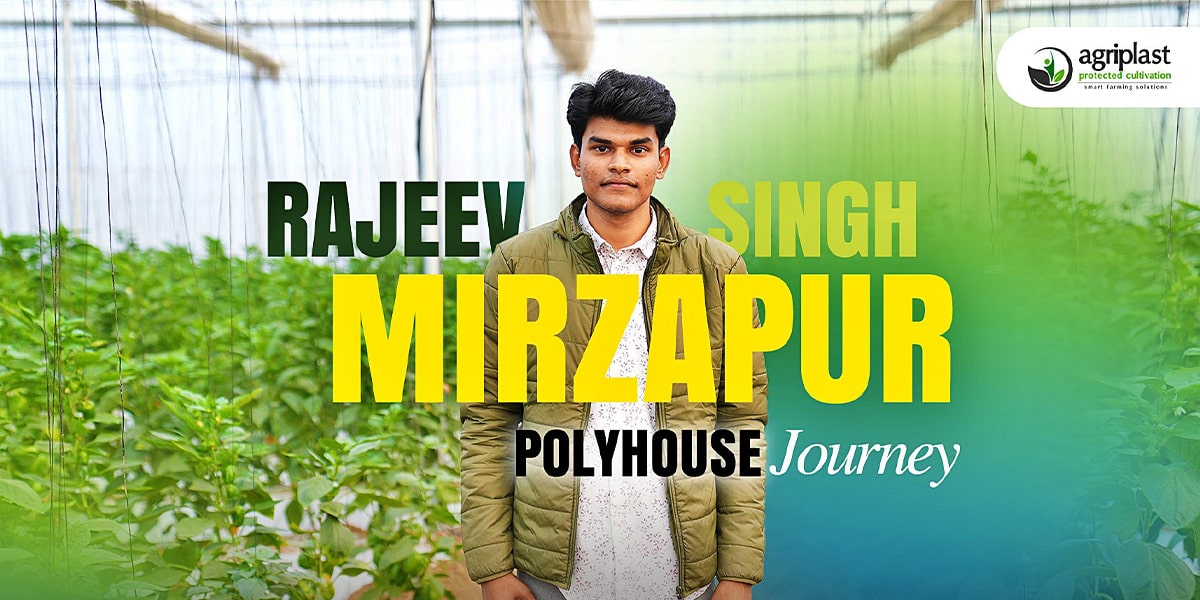Fueling Agribusiness Growth with Agriplast Protected Cultivation Solutions
Maximizing Crop Yield in Polyhouse Farming: Effective Pest and Disease Management Strategies
Effective pest and disease management is a crucial aspect of successful polyhouse farming. Poor pest and disease control can lead to significant yield losses, reduced profits, and even jeopardize the entire farming operation. By implementing a combination of preventative, cultural, and chemical measures, farmers can protect their crops from pests and diseases, ensuring maximum yield potential and overall agricultural success.

As the agriculture industry strives to meet the growing demand for food and sustain a rapidly increasing global population, there is an escalating need for efficient pest and disease management strategies in polyhouse farming. Implementing such techniques not only helps to boost crop yields but also promotes sustainable farming practices that minimize environmental impact, giving farmers the means to maintain their operations for generations to come.
In this blog, we will explore a variety of pest and disease management strategies to help farmers develop a comprehensive and effective approach to safeguard their crops and maximize productivity. We will also examine how Agriplast Protected Cultivation's innovative solutions and expert guidance can benefit polyhouse farmers in their battle against common pests and diseases.
Preventative Measures: Laying the Foundation for Pest-Free Polyhouse Farming
1. Polyhouse Design and Construction:
An essential aspect of preventing pest infestations and diseases is the proper design and construction of polyhouses. A well-built polyhouse featuring durable materials, screened vents, and strategic door placements can significantly reduce the risk of pests entering the structure. Agriplast Protected Cultivation offers expert consultation services to help farmers develop robust polyhouse designs that provide effective pest and disease prevention.
2. Pest-Resistant Varieties and Grafting:
One effective way to reduce the impact of pests and diseases is to utilize disease-resistant plant varieties. Additionally, farmers can employ grafting techniques to combine desirable traits from multiple plant species, such as resistance to specific diseases and enhanced overall productivity. Agriplast Protected Cultivation provides farmers with expert advice on selecting and cultivating pest-resistant crop varieties and implementing grafting techniques appropriate for their unique growing conditions.
Cultural Practices: Fostering a Pest and Disease-Unfriendly Environment
1. Crop Rotation and Intercropping:
Implementing crop rotation and intercropping practices can help to prevent the buildup of pests and diseases within polyhouses. Both techniques disrupt the life cycle of pests and pathogens, reducing their potential to cause significant crop damage. Agriplast Protected Cultivation supports farmers in developing tailored crop rotation and intercropping plans to optimize their polyhouse farming operations for a healthy and resilient crop ecosystem.
2. Sanitation and Hygiene:
Maintaining a clean polyhouse environment is crucial in preventing pest infestations and disease spread. Regularly removing crop debris, weeds, and diseased plants, as well as disinfecting tools and surfaces, can help to create an unwelcoming environment for pests and pathogens. Agriplast Protected Cultivation offers a range of sanitation products to help farmers maintain hygienic polyhouse conditions, along with expert guidance on best practices for polyhouse sanitation and hygiene.
Integrated Pest Management (IPM): A Holistic Approach to Pest Control
1. Monitoring and Detection:
An effective IPM strategy incorporates regular monitoring and detection of pests and diseases through visual inspections, monitoring devices, and pest scouting. Early detection enables farmers to take appropriate action, preventing major pest outbreaks and ameliorating damage to crops. Agriplast Protected Cultivation equips farmers with the necessary tools and guidance for effective pest and disease monitoring, ensuring that potential threats are identified and addressed in a timely manner.
2. Biological Control:
Introducing beneficial insects and microorganisms can help control pest populations and reduce the reliance on chemical pesticides. Commonly utilized biological control agents include predatory insects such as ladybugs and parasitic wasps, as well as microbial agents like Bacillus thuringiensis. Agriplast Protected Cultivation assists farmers in identifying suitable biological control options for their polyhouse operations and provides expert guidance on effectively incorporating these agents into their pest management strategies.
Chemical Control: Strategically Employing Pesticides
1. Pesticide Selection and Application:
When pesticides are deemed necessary for pest control, farmers should select the most appropriate product for their specific pest issue, considering factors such as environmental impact, pesticide resistance, and human health implications. Agriplast Protected Cultivation supports farmers in making informed decisions regarding pesticides and offers guidance on proper product selection, dosage, and application methods to ensure the effective and responsible use of these chemical agents.
2. Rotation and Resistance Management:
Pesticide resistance can become a significant issue when pests develop an immunity to the chemicals used to control them. By implementing a pesticide rotation program and avoiding over-reliance on a single pesticide, farmers can reduce the possibility of resistance development. Agriplast Protected Cultivation provides support to farmers seeking to develop comprehensive and environmentally responsible pesticide rotation and resistance management programs.
Conclusion
Effective pest and disease management is essential for achieving maximum crop yields and long-term success in polyhouse farming. By employing a combination of preventative measures, cultural practices, integrated pest management, and chemical control strategies, farmers can effectively safeguard their crops while promoting environmentally sustainable farming practices.
Agriplast Protected Cultivation, India's largest greenhouse and polyhouse construction company, offers a diverse range of products and services enables farmers to access the tools, knowledge, and support necessary for tackling the challenges of pest and disease management. With us by their side, polyhouse farmers can be assured of a strong defense against these threats and a foundation for increased agricultural productivity and success. Explore our range of polyhouses today!



















